Coffee filters can be composted, but there are also seven alternative uses for them. Coffee filters can be used to make paper mache, to filter oil, to make a fire starter, to clean windows, to polish silver, to make a vase, or to make a biodegradable scrubber.
Can Coffee Filters Be Composted?
Coffee filters are made of paper, so they will break down quickly in the compost. Coffee filters can be composted, but there are a few things you should know before you add them to your compost pile. However, they can also be a source of mold and bacteria if they are not composted properly.
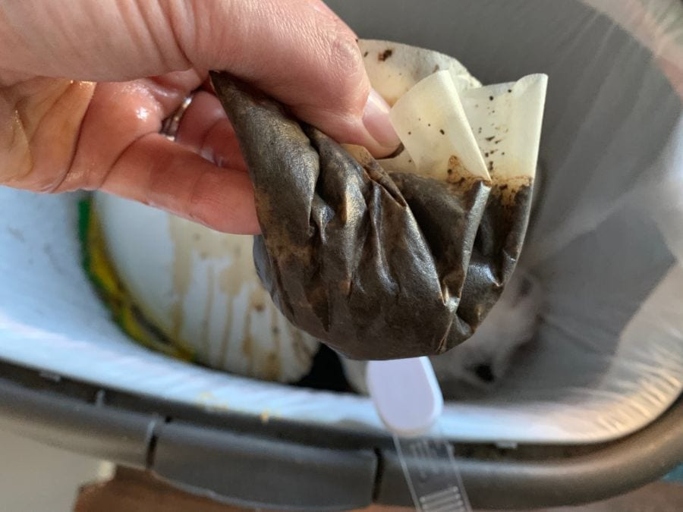
Coffee filters should be composted at a ratio of about one part coffee filter to three parts other organic materials. This will help them break down more quickly. To compost coffee filters, you should first tear them into small pieces. You can then add them to your compost pile or bin along with other organic materials.
Be sure to keep the coffee filters moist so they don’t dry out and become a fire hazard. You can compost them in a paper bag or in a container with holes in the bottom. If you don’t have a compost pile or bin, you can still compost coffee filters.
However, if you don’t compost them properly, they can be a source of mold and bacteria. Composting coffee filters is a great way to reduce waste and help your garden.
How to Compost Coffee Filters
Coffee filters are made of paper, so they will break down quickly in the compost. Coffee filters can be composted, but there are a few things you should know before you add them to your compost pile. However, they can also be a source of mold and mildew if they are not composted properly.
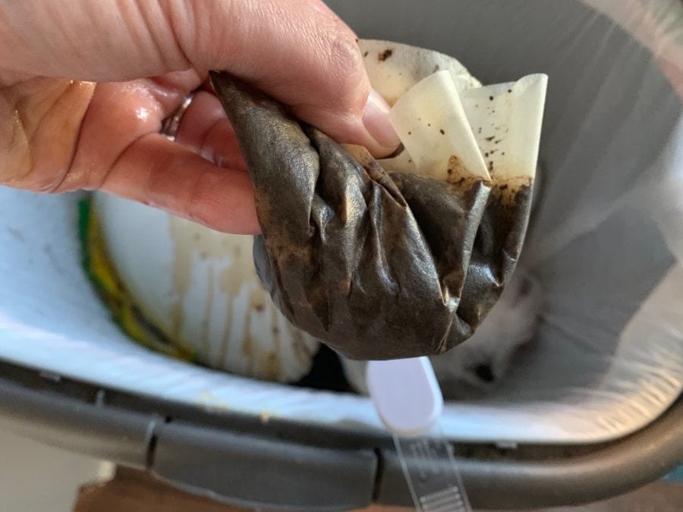
Coffee filters can also be added to worm composting bins. This will help them break down more quickly. To compost coffee filters, you should first tear them into small pieces. You can then add them to your compost pile or bin along with other organic materials.
Coffee filters will eventually break down and add nutrients to the soil. If you don’t have a compost bin, you can still compost coffee filters. You can bury them in your garden or yard, or even put them in the bottom of a potted plant.
1 – Compost the Grounds as Well
Just toss them in the compost bin with the used coffee grounds and let nature do its thing. Coffee filters can be composted along with the coffee grounds. The coffee filters will break down over time and add valuable nutrients to the compost.
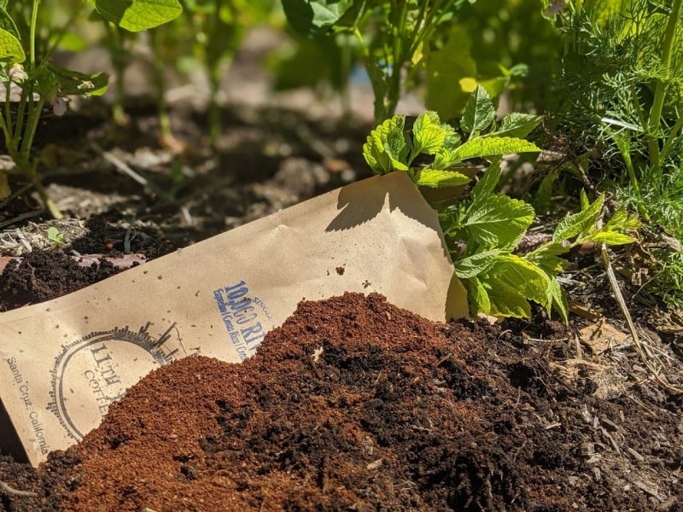
Coffee filters can also be used to make paper crafts or used as packing material. Used coffee filters can be used as mulch or added to the compost pile. Composting coffee filters is a great way to reduce waste and give back to the earth.
This will help the coffee filters break down more quickly. Coffee filters can also be composted alone, but it may take longer for them to break down. When composting coffee filters, be sure to include them with the coffee grounds.
2 – Break Them Down
There are a few ways to do this: Coffee filters can be composted, but it’s important to break them down first.
1. Tear the filter into smaller pieces. This will help it break down faster in the compost.
2. Soak the filter in water for a few hours. This will also help it break down faster.
This will make it easier to break into smaller pieces. 3. Put the filter in the freezer for a few hours.
4. Put the filter in a blender or food processor and pulse until it’s broken down into smaller pieces.
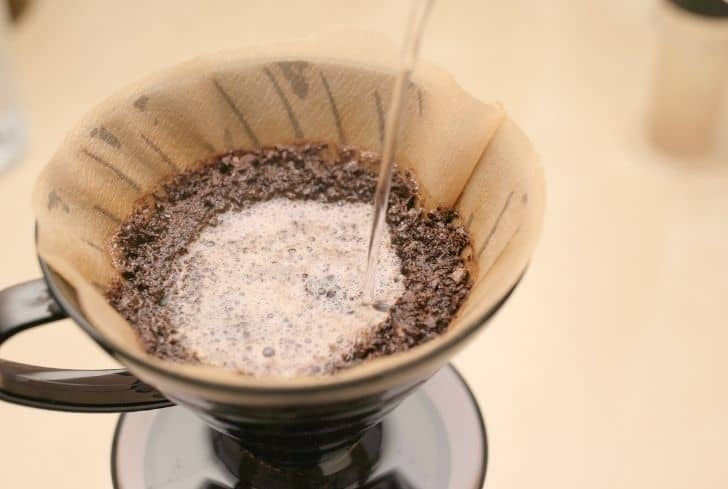
This will help keep animals from getting to it and will also help it break down faster. 5. If you have a compost bin with a lid, you can put the filter in there and close the lid.
Once the filter is broken down, you can add it to your compost bin along with other compostable items like food scraps and yard waste.
3 – Don’t Add Too Much at Once
without oxygen). Coffee filters can be composted, but it’s important not to add too many at once. This is because they can absorb a lot of moisture, which can lead to anaerobic conditions (i.e.
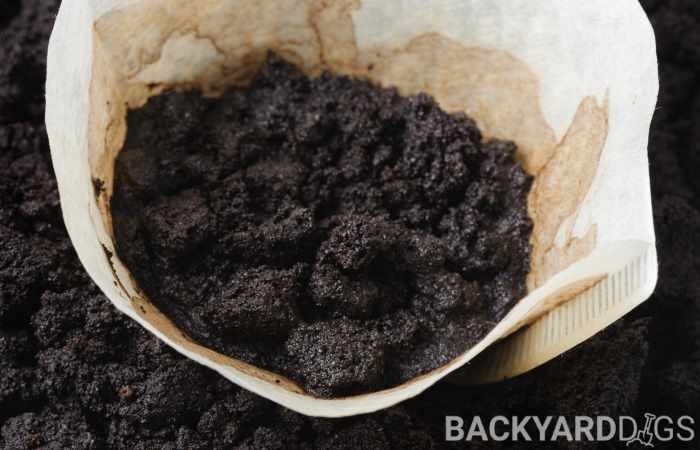
If you’re using a bin system, make sure to add other materials (such as leaves or grass) to keep the coffee filters from compacting. If you’re using a pile method, turn the pile regularly to aerate it.
Coffee filters can take several months to break down, so be patient!
4 – Keep Them Moist
Coffee filters can be composted, but it’s important to keep them moist so they break down properly. If your compost pile is dry, you can mist the coffee filters with water before adding them. You can also soak them in water for a few minutes before adding them to the pile. The easiest way to do this is to add them to your compost pile when they’re still wet from making coffee.
Alternative Uses for Used Coffee Filters
Coffee filters can be composted, but there are also many alternative uses for them. Used coffee filters can be used to:
-Polish silver
-Clean windows
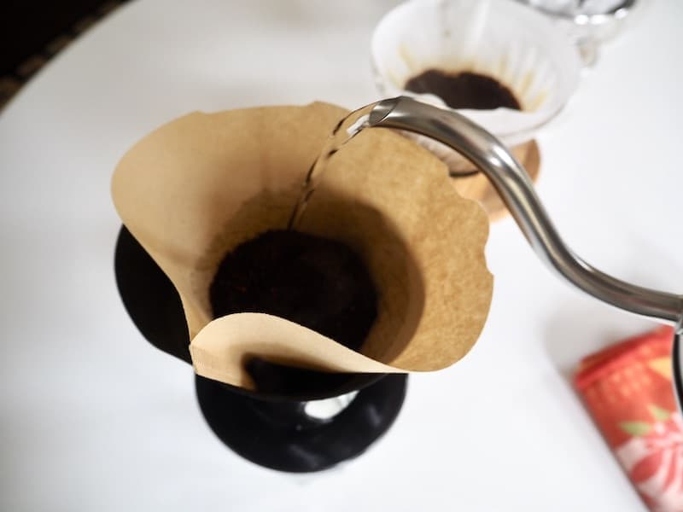
-Wipe down counters
-Dust furniture
-Absorb grease from cooking
-Line plant pots
-Make paper mache
1 – Reuse Them
Here are seven different ways you can reuse them: There are plenty of alternative uses for coffee filters other than just throwing them away.
1. Use coffee filters to pre-filter water for your coffee maker. This will help remove any impurities in your water and make for a better-tasting cup of coffee.
2. Make a DIY air freshener by soaking coffee filters in your favorite essential oil.
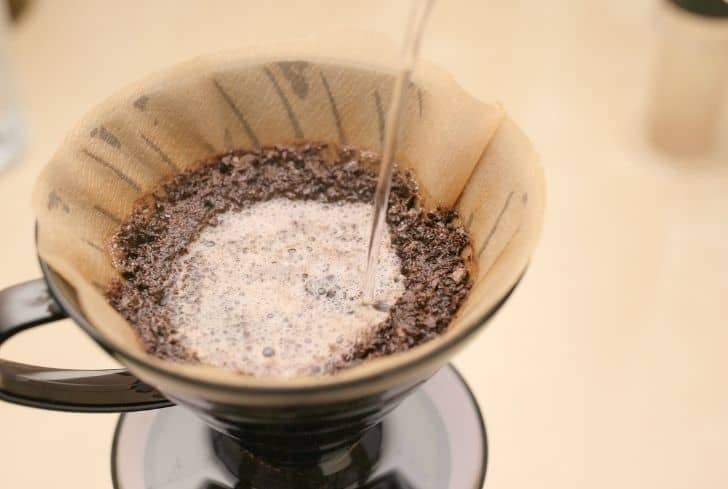
3. Use coffee filters as a natural way to clean windows or mirrors. They’re great for getting rid of streaks and fingerprints.
4. Protect delicate items like china or stemware when you’re packing them for moving or storage by wrapping them in coffee filters.
5. Make a quick and easy disposable dust cloth by spraying a coffee filter with furniture polish.
Just make sure to dispose of it properly once it’s full. 6. Soak up grease spills in the kitchen with a coffee filter.
They’re great for getting the flames going and they’re completely biodegradable. 7. Use coffee filters as kindling when you’re starting a fire.
2 – Line Plant Pots
2 – Line Plant Pots
If you have a lot of coffee filters, you can put them to good use by turning them into plant pots. This is a great way to recycle coffee filters and give your plants a little extra drainage.
To make a coffee filter plant pot, start by folding the coffee filter in half. Finally, staple the rim closed. Then, fold it in half again and staple the folded edge closed. Next, fold down the top of the coffee filter to create a rim.
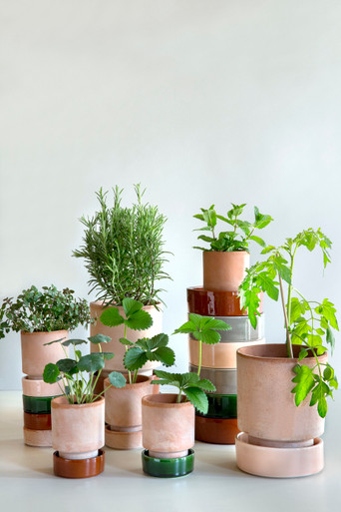
Your coffee filter plant pot is now ready to use. Just add some potting soil and your plant, and you’re all set.
And, since they’re lightweight, coffee filter plant pots are easy to move around. Coffee filters make great plant pots because they’re lightweight and porous. The porosity of the coffee filter allows excess water to drain out, which is important for preventing root rot.
So, if you’re looking for a way to recycle your coffee filters, try making some plant pots. Your plants will thank you for it!
3 – Strain Cooking Oil
3 – Strain Cooking Oil
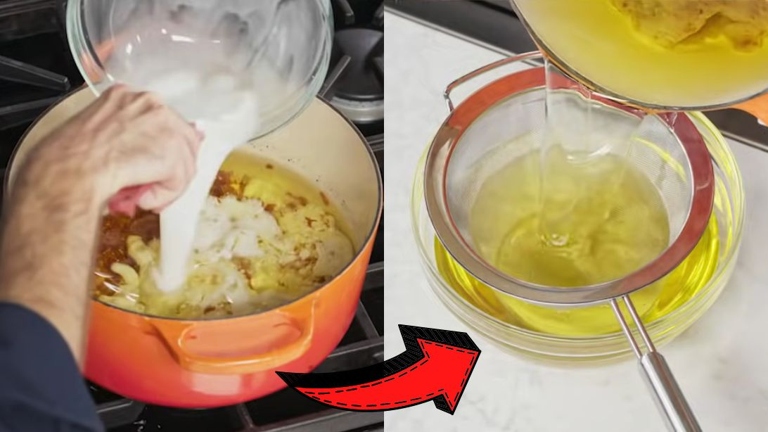
Simply pour the oil into the filter-lined strainer and let it drain. Cooking oil can be a pain to strain, but a coffee filter makes the process much easier. The coffee filter will catch any bits of food or impurities, making for a cleaner final product.
4 – Control the Growth of Weeds
We all know that coffee filters can be used to make a delicious cup of coffee, but did you know that they can also be used to control the growth of weeds?
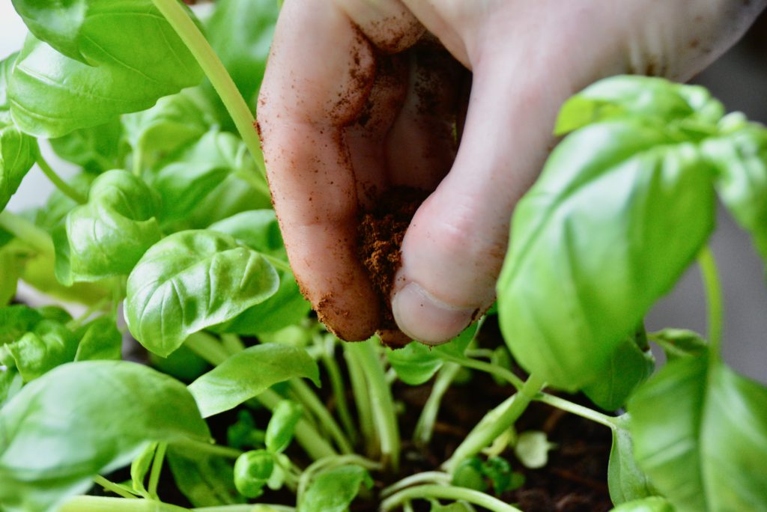
Weeds can be a real pain to deal with, but coffee filters can help to keep them under control. The coffee filter will block out the sun and prevent the weed from getting the light it needs to grow. Simply place a coffee filter over the top of a weed and secure it in place with a rock or piece of tape.
Plus, it’s a great way to recycle those used coffee filters! This is a great way to deal with weeds without using any harmful chemicals.
5 – Provide Protection
For example, you can place a coffee filter over a plant to protect it from the sun or wind. This will help to prevent sticking and make cleanup easier. You can also use a coffee filter to line a baking dish when making a cake or other baked goods. One alternative use for used coffee filters is to use them as a form of protection.
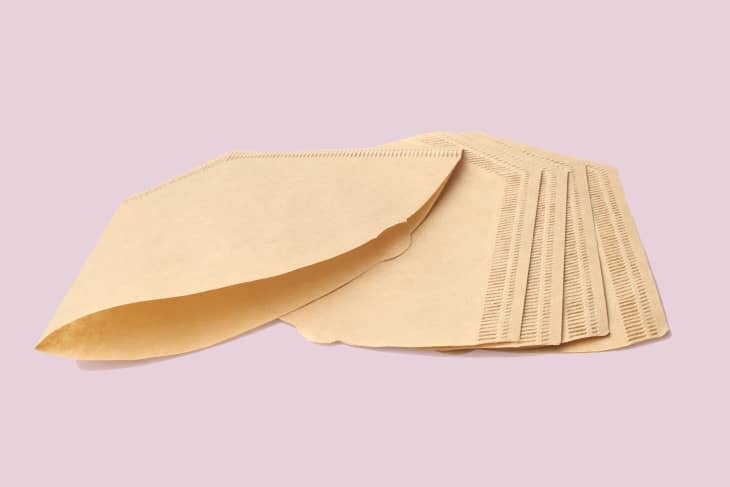
This will help to prevent your hands from coming into contact with the material and getting damaged. Another alternative use for coffee filters is to use them as a form of protection for your hands when working with messy or dangerous materials. For example, you can use a coffee filter to line a glove when working with paint or other chemicals.
This will help to prevent the dark colors from staining your furniture. yet another alternative use for coffee filters is to use them as a form of protection for your furniture. If you have light-colored furniture, you can place a coffee filter over it when you are using dark-colored materials.
6 – Clean Glass Surfaces
Coffee filters can be used to clean glass surfaces. The coffee filter will remove any smudges or fingerprints. Just wet the filter and rub it on the glass.
7 – Retain Moisture in the Microwave
Simply wet the filter and place it over your food. If you’re looking for an easy way to retain moisture in the microwave, used coffee filters are a great option. The filter will help to keep the food moist and prevent it from drying out.
The filter will help to keep the cake moist and prevent it from sticking to the pan. Used coffee filters can also be used to line baking pans when making cakes or other desserts.
Simply wet the filter and use it to wipe down your windows. The filter will help to remove any dirt or grime. If you’re looking for a natural way to clean your windows, used coffee filters are a great option.
The filter will help to trap dust and prevent it from settling on your furniture. Used coffee filters can also be used to dust your home.
The filter will help to absorb any urine or feces and prevent your pet from tracking it around the house. If you have pets, used coffee filters can be used to line their litter boxes.

Finally, used coffee filters can be used to make paper flowers. Simply cut the filter into the desired shape and then glue or tape it to a piece of paper. The filter will add a unique texture to your flower.
Frequently Asked Questions
1. What are coffee filters made of?
Coffee filters are made of a paper-like material.
2. Can coffee filters be composted?
Yes, coffee filters can be composted. They will break down in a compost pile and add nutrients to the soil.
3. How long does it take for a coffee filter to compost?
It takes about two to four weeks for a coffee filter to compost.
4. What are some alternative uses for coffee filters?
-Wiping up spills
-Polishing furniture
-Cleaning windows
-Making paper flowers
-Staining wood
5. Can coffee filters be recycled?
Yes, coffee filters can be recycled. They can be placed in a recycling bin with other paper products.
Final thoughts
Coffee filters are not compostable, but there are many alternative uses for them. They can be used to make paper flowers, coffee filter wreaths, or even used as a paintbrush. The next time you have a coffee filter, think about all the possibilities before you throw it away.
